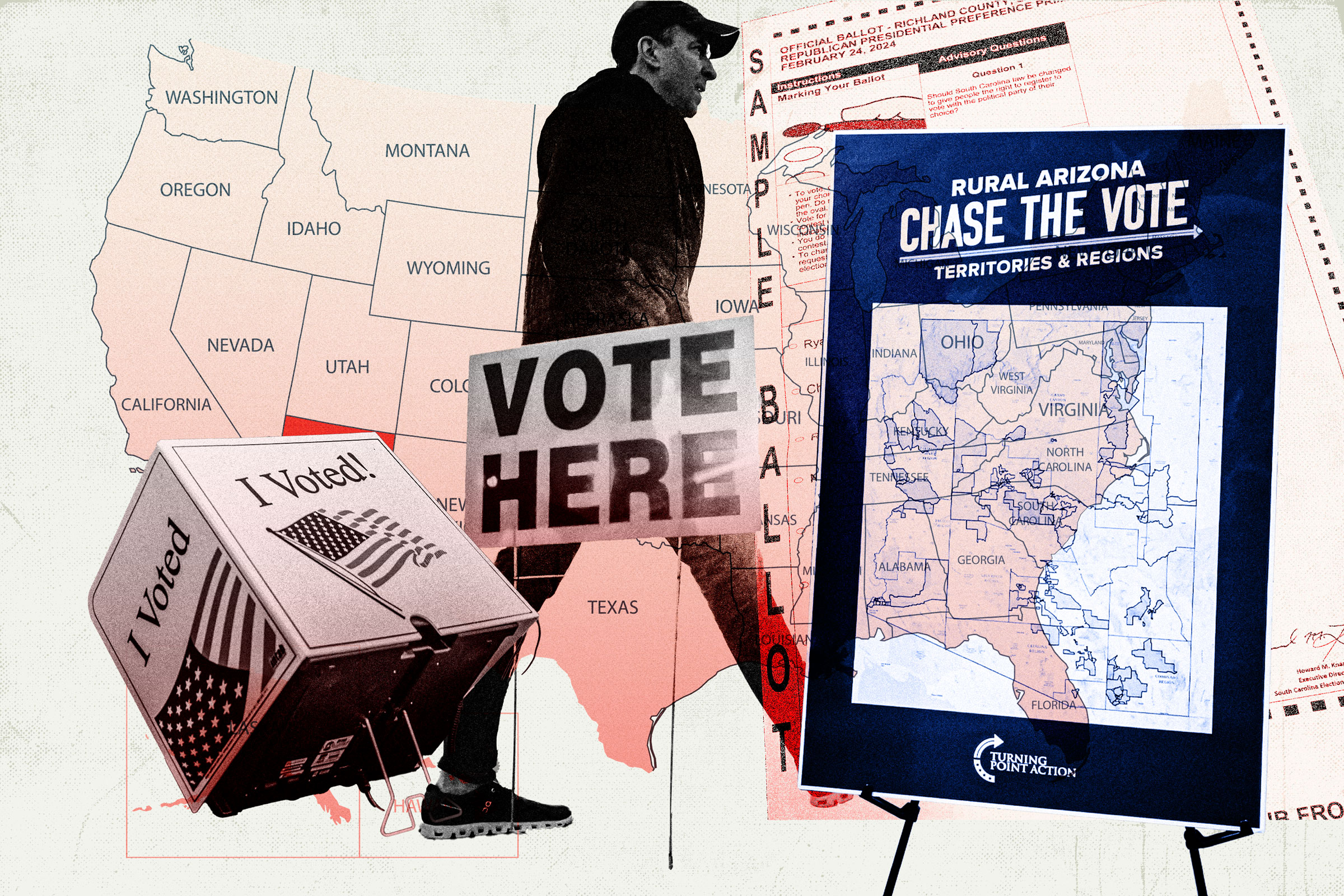PHOENIX, Ariz—Matthew Martinez bounded from map to map, a broad smile on his face.
He pointed out important areas of Arizona and Wisconsin—“super chase” jurisdictions scattered throughout the two battleground states.

PHOENIX, Ariz—Matthew Martinez bounded from map to map, a broad smile on his face.
He pointed out important areas of Arizona and Wisconsin—“super chase” jurisdictions scattered throughout the two battleground states.